A conversation with Kotn’s co-founder, Rami Helali
We talk sustainability, injecting creativity into your product drops, and building a legacy brand.
Note: This email is in partnership with Kotn.
What it means to build a legacy brand
Kotn.
I’ve written about them before (their spring campaign, their approach to linen, the way they understand stillness in a culture that’s allergic to it). But that was more of a surface scan.
This is a deeper dive into who they are. Because there are brands that sell you clothes, and then there are brands that shift how you think about what clothes should mean.
Kotn is the latter.
Most fashion brands “posture” with their philosophy or brand ethos.
They own their cotton farms. They know the farmers by name. They fund schools in the communities where their materials are grown. They shoot campaigns in Cairo because that’s where the story actually lives.
And I want to talk about why they’re positioning themselves differently than other brands. After that, I go straight to the source and chat with Rami about his philosophy in building his brand.
Quick note
If you want to see their newest knitwear collection, use my code and you’ll get 15% off.
Code: SPREZZA15
They have a clear point of view
Kotn’s entire philosophy is rooted in something most brands avoid: putting legacy at the forefront, because it’s an actual operating principle.
Their co-founder, Rami Helali, grew up between Egypt and Canada, and that upbringing shaped everything about how he builds. Relationships there aren’t transactional. They take time. They’re built on trust, generosity, and care that isn’t performative.
That lens is embedded in every layer of the brand. From the way they work with smallholder farmers to the way they think about design, it’s all grounded in this idea that value isn’t about scarcity or speed. It’s about longevity, intention, and connection.
Western fashion operates on cycles (trends, drops, hype windows). Kotn operates on rhythm. The kind of rhythm that doesn’t chase relevance because it’s building something more durable than relevance: resonance.
They own how they create
Most brands talk about sustainability. Kotn walks it. They don’t outsource their supply chain and hope for the best. They’re a certified B Corp, which means they’re legally accountable to people and planet, not just profit.
When Rami first went to Egypt to learn about cotton, he just started asking questions. A farmer invited him to dinner, and he ended up staying for six months. Those months became the foundation of the entire business.
The farmers taught him everything… about the land, the cotton, the people. That experience built a sense of accountability that most brands will never touch because they’ll never get that close.
Kotn’s model is relational commerce.
Every order funds schools.
Every piece of cotton is grown by people they know personally.
The entire system feeds back into the same ecosystem.
Their creative direction is uncommon
Kotn’s campaigns have a softness to them, a warmth that feels earned, not engineered. Their FW25 campaign, Don’t Go toBasateen at Night, wasn’t about rebellion for rebellion’s sake. It was about reframing how we see beauty, finding grace in places we’re told to fear, seeing poetry in the everyday.
Their spring campaign, Stories of Nothingness from Everywhere, celebrated the in-between moments that most brands overlook.
The casual tension of sitting around. The richness of time when nothing is being extracted from it. Shot entirely by MENA creatives, it felt less like a production and more like a scene you walked into.
Even the way they design clothes carries that sensibility. There’s a stillness to their pieces. They don’t compete for attention. They just exist in a way that feels human, functional, and rooted in something real.
It’s very clear that Kotn Arguments about what value should mean. About what beauty looks like when it’s not polished. About what it means to build something that matters, even when the industry around you is optimizing for speed.
This interview is with Rami Helali, Kotn’s co-founder. It’s one of the most thoughtful conversations I’ve had with a founder. Not just about building a brand, but about building a worldview. About what happens when you bring cultural memory into a Western-dominated industry. About the tension between doing things the right way and trying to scale in a world that rewards shortcuts.
If you’ve ever wondered what it looks like when someone builds a brand from belief instead of brief, this is it.
In conversation with Rami Helali
You’ve spoken before about how your Egyptian upbringing shaped your view of time and relationships.
How do you think that lens has carried into your work building Kotn?
Honestly, a lot of how we build Kotn comes from the way I grew up in Egypt. Relationships there aren’t quick or transactional; they take time, they’re built on trust and genuine care. When I first went to Egypt to learn about cotton, I didn’t have a plan. I just started asking people questions. One farmer invited me for dinner, and I ended up staying for six months.
That time completely changed me. I saw how generosity and community are just a way of life. People there taught me that if you take care of the people around you, everything else falls into place. That’s exactly how we approach Kotn: the farmers we work with, the schools we build, even the relationships with our customers. It’s all about connection and mutual respect. That’s very much an Egyptian value.
Western fashion often equates value with speed, exclusivity, and trend cycles.
What are some values from your own cultural background that you wanted to bring forward as an alternative?
Growing up in Egypt, luxury wasn’t about things being rare or exclusive. It was about care and longevity. There’s a slower rhythm to life there; people take pride in how something is made, who made it, and the relationships that hold it all together.
When I started Kotn, I wanted to bring that mindset into how we define value. Instead of chasing trends or hype, it’s about grounding things in honesty: where the cotton comes from, who grows it, and what the process supports.
In Western fashion, speed often replaces intention. But where I come from, the idea of value is human. It’s not just about the end product; it’s about the hands, the stories, and the time it took to shape it. That’s the version of luxury I grew up with, and it’s what Kotn stands for.
One of the things Kotn is known for is owning its supply chain, something most brands avoid.
How much of that decision was informed by your cultural values or your firsthand experience in Egypt?
It’s everything. When I first went to Egypt, I had no idea how any of it worked. I just started talking to farmers. My Arabic was fluent, but my body language was North American, and they could tell I didn’t really belong. But one farmer invited me to dinner, then to stay the night, and that turned into six months.
Those months were the foundation of Kotn. The farmers taught me everything about the land, the cotton, and the people. That experience built this sense of accountability. We couldn’t just outsource or guess what was happening in our supply chain. We had to live it, own it, and make it transparent. That’s the cultural piece: building through trust, not transaction.
A lot of fashion brands position themselves as “sustainable,” but you’re actively walking the talk.
What exactly does it mean to be a sustainable brand, how does it show up in the business, and how do you think about your responsibility now that the brand has more visibility?
For me, sustainability isn’t just about materials; it’s about relationships. It’s how you treat the people, the land, and the process that make what you do possible. When we started Kotn, we didn’t use the word “sustainability.” We just tried to build something that made sense: good quality, fair treatment, and long-term impact.
That means every step of what we do feeds back into the same ecosystem. The cotton is grown by smallholder farmers we know personally. Every order helps fund schools in the communities that farm our cotton, support healthcare, and build systems that last. We became a certified B Corp to keep ourselves accountable to that standard.
To me, being sustainable isn’t a marketing claim; it’s a commitment to continuity. It’s making sure the people who help create the product benefit from it just as much as the brand or the customer who wears it.
Talk about the tension between building a business “the right way” and trying to scale in a fast-moving industry.
That’s probably one of the hardest parts. There’s so much pressure to move fast, to grow faster, but the whole philosophy behind Kotn is about slowing down. We now work with thousands of smallholder farms, we’ve opened stores across North America and in London, but the message has stayed the same: slow down, think deeper, value what’s real.
I actually don’t see those things as being at odds. I think there’s a world where you can build something ethically and still do really good business. It just takes a different kind of patience and a different set of priorities.
For us, doing it the right way means being transparent, paying people fairly, and thinking about long-term value instead of quick wins. That doesn’t slow us down; it builds trust. And trust is what lets you scale sustainably.
Scaling while staying true to your principles isn’t easy, but it’s the only way I know how to do this. The more we grow, the more I feel it’s our responsibility to keep proving that ethical business and meaningful growth can exist together.
What are some elements of Egyptian or Middle Eastern design, tailoring, or daily wear that you feel subconsciously (or consciously) show up in Kotn’s pieces?
A lot of it is in the feeling: the stillness, the ease, the simplicity. We design for the everyday, clothes that move easily between function and expression. That’s a very Middle Eastern approach to dressing. It’s not about spectacle; it’s about feeling comfortable, connected, and human.
Our collections are full of subtle nods to where I come from. There’s a deliberate slowness to it, a stillness that pushes back against the pace of modern life. That’s something I see as very Middle Eastern: the beauty of stillness, of breath.
Even in FW25, those ideas come through. The collection is designed less for spectacle and more for the intimacy of everyday life, garments that slip easily between function and self-expression, rooted in heritage and timeless wearability.
What advice would you give to other Middle Eastern creatives or founders trying to make space for themselves in Western-dominated industries?
I think what I’ve learned is that our stories, Arab stories and MENA stories, are powerful when they’re told from our perspective.
Kotn, for me, has always been a reclamation project, not just of Egyptian cotton but of the cultural narrative around it. The same goes for how we portray our cities and people. The most beautiful parts of our world aren’t always polished; sometimes they live in the shadows.
So my advice would be to embrace that. Tell the story the way you see it, even if it doesn’t fit the Western frame of beauty or success.
What’s something you think Western fashion still doesn’t fully understand about the cultural richness of Arab and MENA identity?
I think there’s a tendency to only see one side, either the luxury or the struggle, and miss the humanity that exists in between. What I’ve always found beautiful about our region is the everyday richness of life: the generosity, the connection, the sense of togetherness that exists even when there’s not much else.
Western fashion often overlooks that quiet, grounded beauty. It’s not about perfection or polish; it’s about presence and belonging. That’s the part of Arab identity I want Kotn to reflect, that our strength comes from warmth and community.
There’s a real emotional tone to your campaigns, especially in how they portray time, relationships, and place. Do you see Kotn as a storytelling brand as much as a product brand?
Definitely. For me, Kotn has always been about storytelling as much as it is about product. The campaigns are a way to show emotion, to reframe what beauty or value looks like.
When we did our FW25 campaign, Don’t Go to Basateen at Night, it wasn’t about rebellion. It was about perspective, finding grace in places we’re told to fear, seeing the poetry in everyday life. That’s what Kotn is: storytelling through texture, through community, through time. The clothes are just one piece of that story.


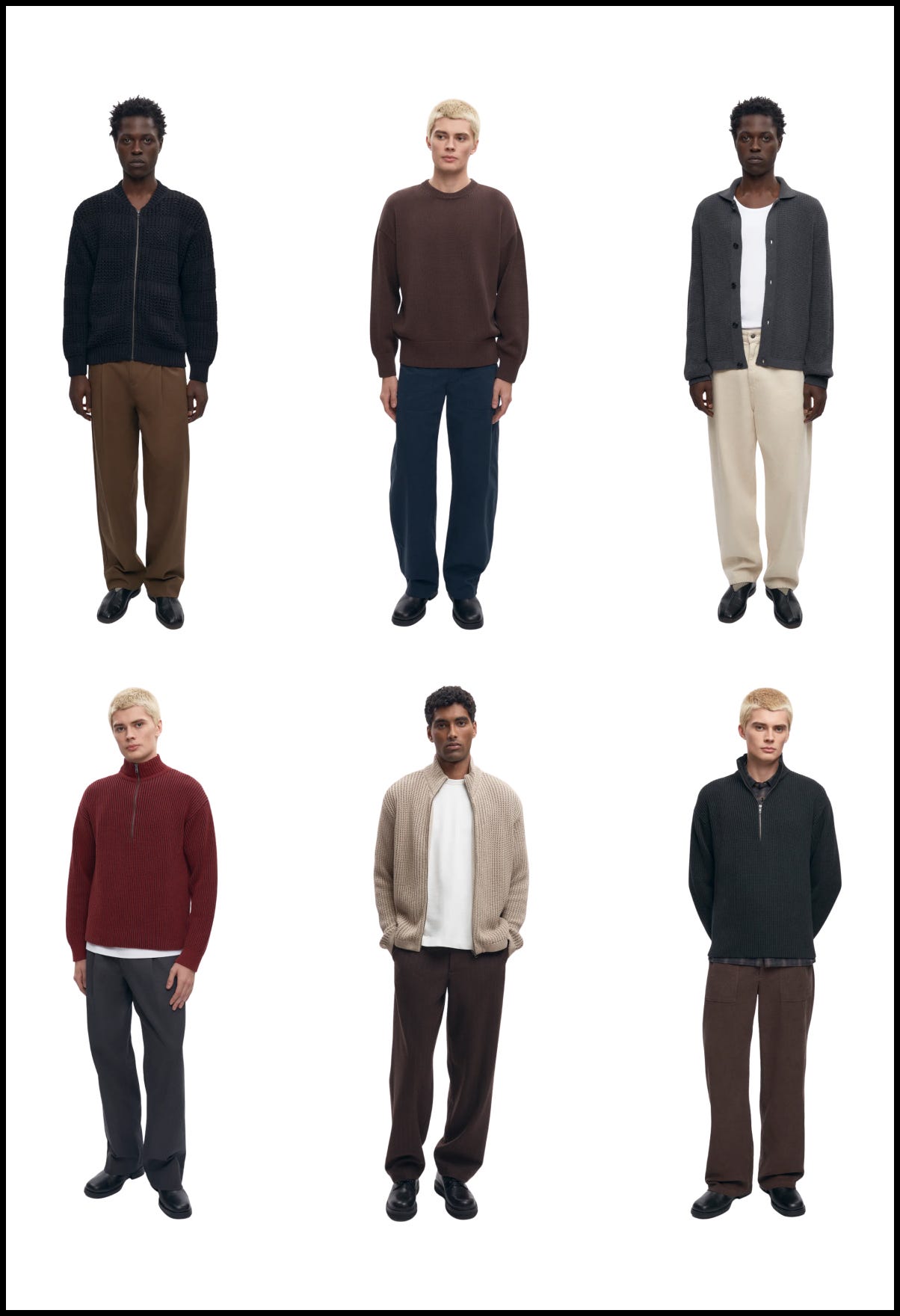
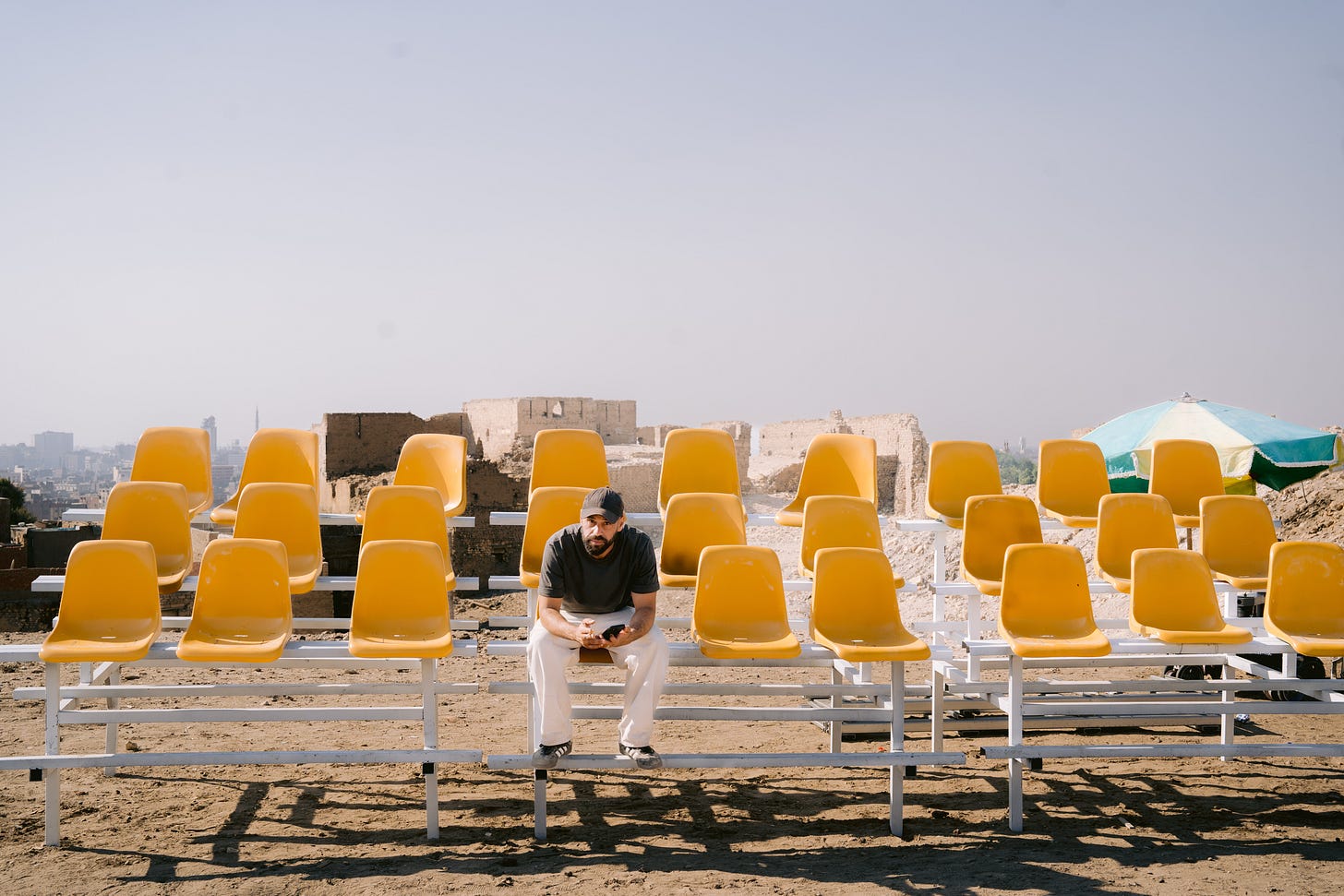
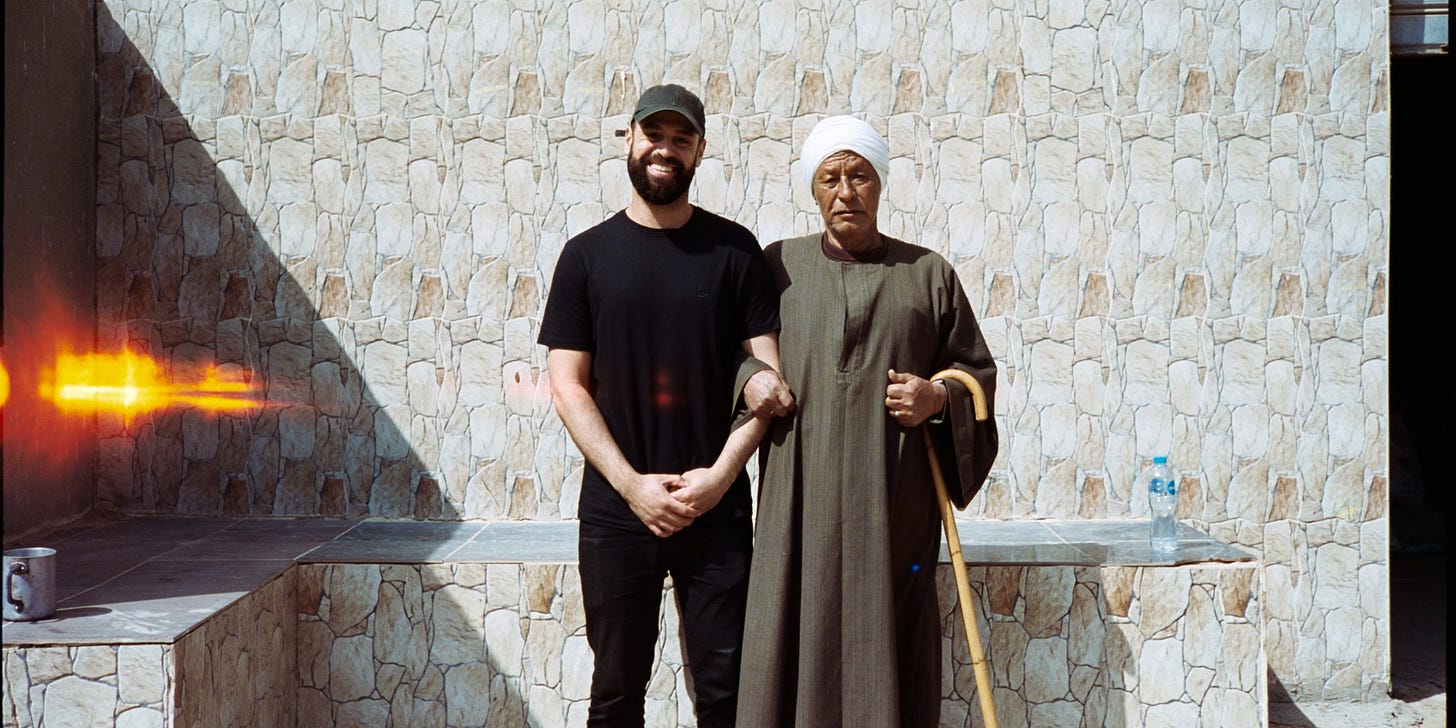
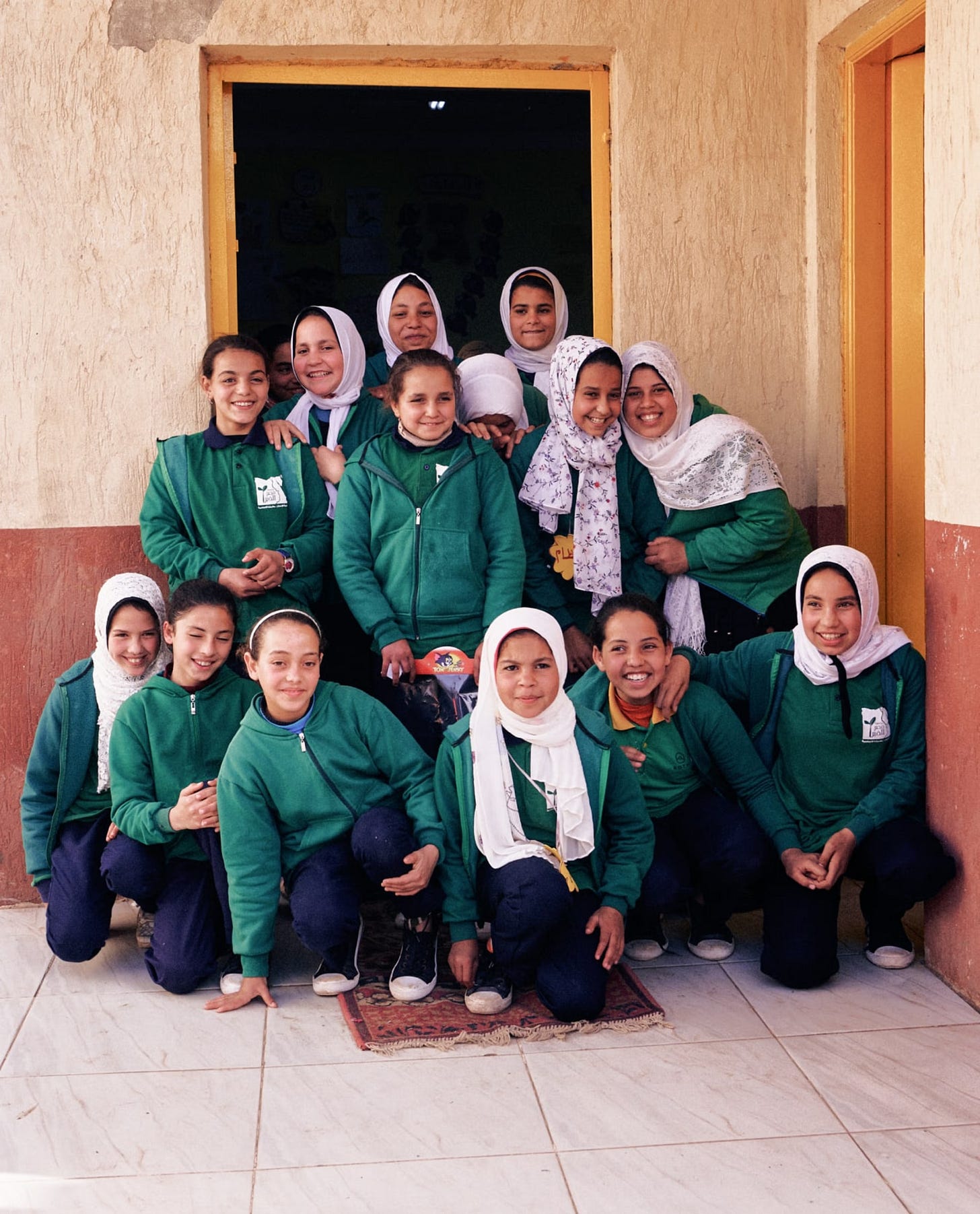
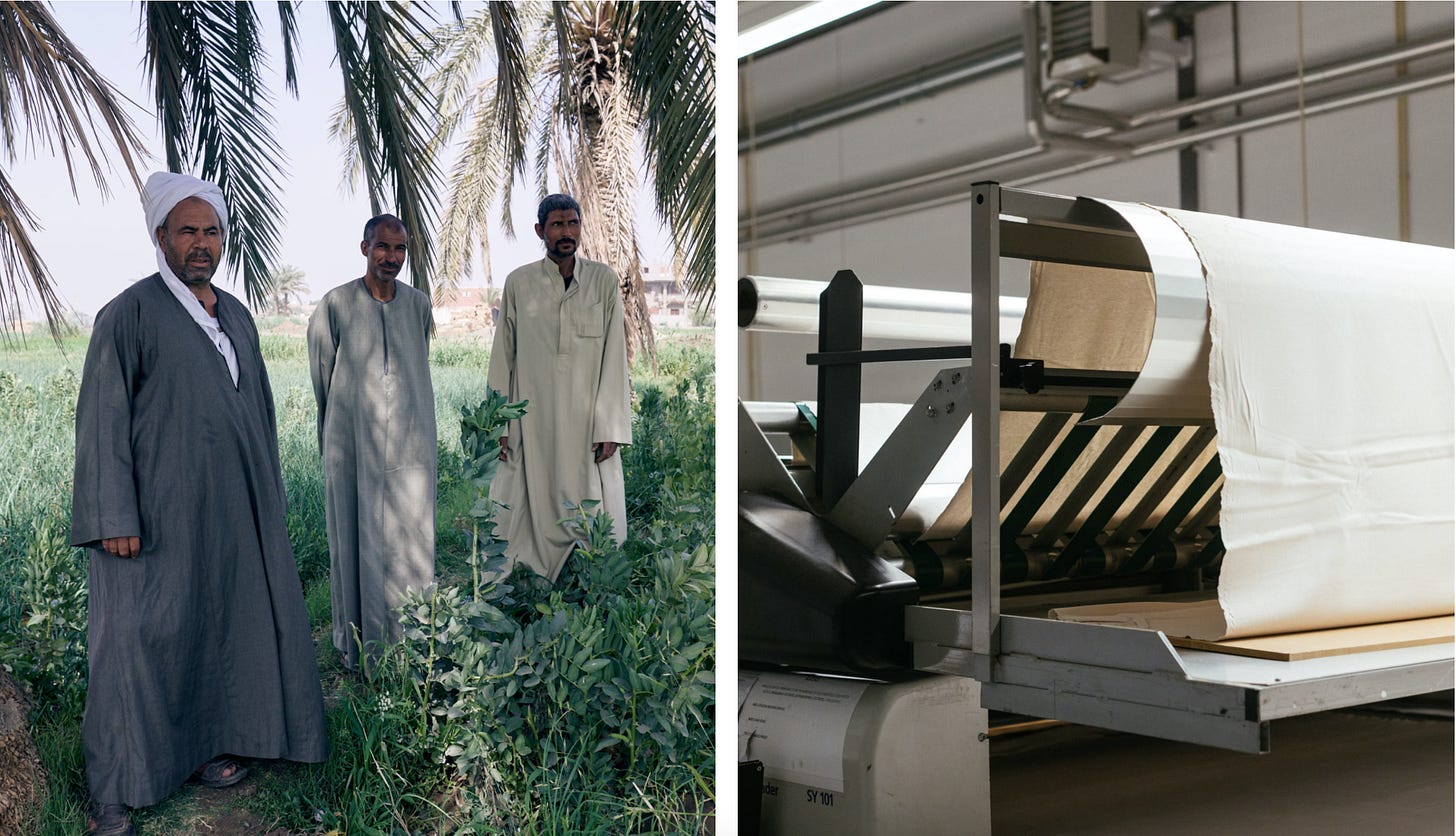
Just wrote about KOTN yesterday in my letter on natural fiber outerwear!
Loved this interview, especially the emphasis that sustainability isn't about materials, but relationships.